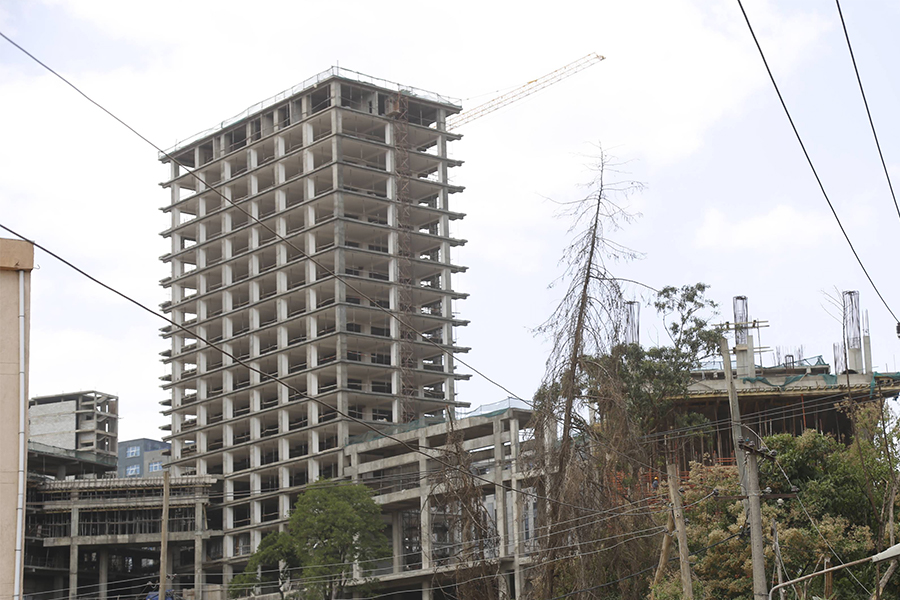
Fortune News | May 23,2021
Federal authorities have granted a domestic vehicle assembler a grace period before the seizure of knocked-down parts that have been stored at three customs bonded warehouses for four months.
Eyob Tekalign (PhD), a state minister for Finance, instructed officials of the Customs Commission last week to permit Elauto Engineering Plc to keep the knocked down parts sufficient to assemble 270 vehicles at the warehouses until further notice. The company ordered the parts after the Ministry of Finance issued a directive in May last year, providing duty exemptions for disassembled vehicles brought in for public transport service.
Gideon Timothewos (PhD), minister of Justice, ruled the directive void, contending that it contradicts a prevailing customs law last amended in 2019.
The disassembled vehicles arrived following Minister Gideon's decision; they have since been stored at three bonded warehouses under the Customs Commission. Imported goods can stay at a bonded warehouse for no longer than four months before subjection to seizure.
Elauto Engineering had been pleading with the Addis Abeba Transport Bureau for an extension, Bekele Abebe, general manager, disclosed to Fortune.
The State Minister told customs officials to hold the parts until the directive that provides duty exemptions is approved by the Council of Ministers. The directive granting duty privileges to domestic assemblers is still in the making, people close to the process told Fortune.
Under the supervision of Debele Kebeta, the Customs Commission runs 16 branch offices and employs close to 8,000 people. It is also responsible for permitting over 150 bonded warehouses where imported goods with unpaid duties are stored. Among these is a bonded warehouse under the supervision of the Qality Customs Branch Office in Addis Abeba. Some of Elauto's parts are stored there.
“We were instructed to allow the parts to stay for an additional month,” said Alemayu Anticho, general manager of the Branch Office.
Elauto Engineering brought the knocked-down parts to assemble vehicles to be deployed to address Addis Abeba's public transport crisis.
It is a plan experts criticise as "unwise" to rely on expanding taxi fleets.
“It doesn't consider the road infrastructure or the earnings of many residents,” said Engida Tadie, a lecturer of transportation management at Kotebe Metropolitan University.
He recommends that officials provide duty-free privileges to assemblers of mass transit vehicles to satisfy the capital's transport needs. Close to 2.5 million commuters use public transport in Addis Abeba each day. However, the 10,131 public transport vehicles, many blue-and-white painted, fall short of satisfying demand.
The city's administration rolled out a plan to replace aged blue-and-white taxis (commonly referred to as Lada) with new vehicles three years ago. The city's transport bureau facilitated loans from the state-owned Commercial Bank of Ethiopia (CBE) to import 10,000 disassembled vehicles for taxi services.
It coincided with the rapid expansion of ride-hailing services, which have grown to over 40 and pose a severe threat to the blue-and-white taxi owners. Over 10,000 vehicles are registered with the ride-hailing businesses in Addis Abeba. Several taxi associations and vehicle assemblers moved quickly to take advantage of the scheme.
Ze-Lucy Metre Taxi, a consortium of taxi associations, has imported 751 vehicles, while HelloTaxi, an importer of metre taxis, partnering with O'Clock General Motors, has delivered cars to 36 taxi associations members. The initiative later expanded to include privileges to buy locally-assembled vehicles composed of parts imported duty-free after the Finance Ministry issued the directive.
A year ago, officials approved proposals submitted by 23 taxi associations interested in buying vehicles from domestic assemblers with a seating capacity of between four and 10 passengers. Another 17 associations secured support from the Ministry of Transport, a prerequisite for the duty-free privilege.
There are 45 taxi associations registered by the Addis Abeba Transport Bureau, each comprising 55 vehicle owners.
Incorporated four years ago, Elauto Engineering Plc has shown interest in entering a deal with 23 of these associations. Elauto Engineering has thus far assembled and sold 60 seven-seat vehicles at the cost of 1.3 million Br apiece. However, the buyers were not taxi associations.
“They were sold to individuals willing to pay the duties,” said Bekele.
However, officials of the Customs Commission ordered the company to cease assembly and sales three months ago. This has left members of 19 Star, one of seven taxi associations that partnered with Elauto a year ago, in despair. The company consented to assemble and deliver four types of vehicles with prices ranging from 650,000 Br to 720,000 Br. Close to 50 members of the association paid 30pc of the value of the cars up front.
Although 19-Star members were aware that Elauto Engineering sold the vehicles to other buyers, there was nothing they could do.
“Not a single member can afford to pay,” said Wondafraw Girma, founder of the taxi association.
Abraham Getachew, who moved back to Addis Abeba from Qatar with his wife and child six years ago, is a member. Last year, he heard about Elauto's offer and paid the 30pc (190,000 Br) downpayment. He was confident the vehicle would be delivered to him in six months, as the management of Elauto Engineering had pledged. It is a promise in waiting. Abraham finds himself in dire straits as his wife recently gave birth to their second child. The money he had saved up from working as a construction machinery operator in Qatar is running out.
“Even if the company delivers the vehicle, I've no money to pay for the balance,” he told Fortune.
He now makes a living as a construction foreman, earning 250 Br a day while his wife washes clothes for additional income.
PUBLISHED ON
May 21,2022 [ VOL
23 , NO
1151]

Fortune News | May 23,2021

Fortune News | Jul 18,2020


Sunday with Eden | May 23,2021

Sunday with Eden | Oct 02,2021
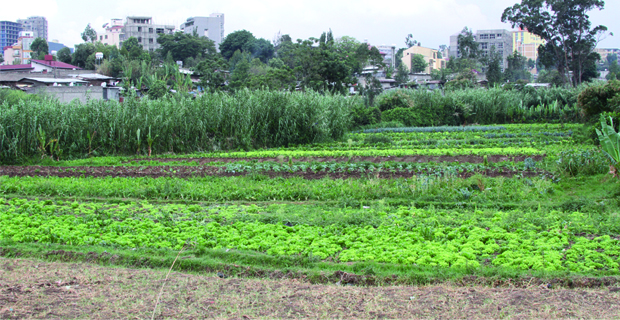
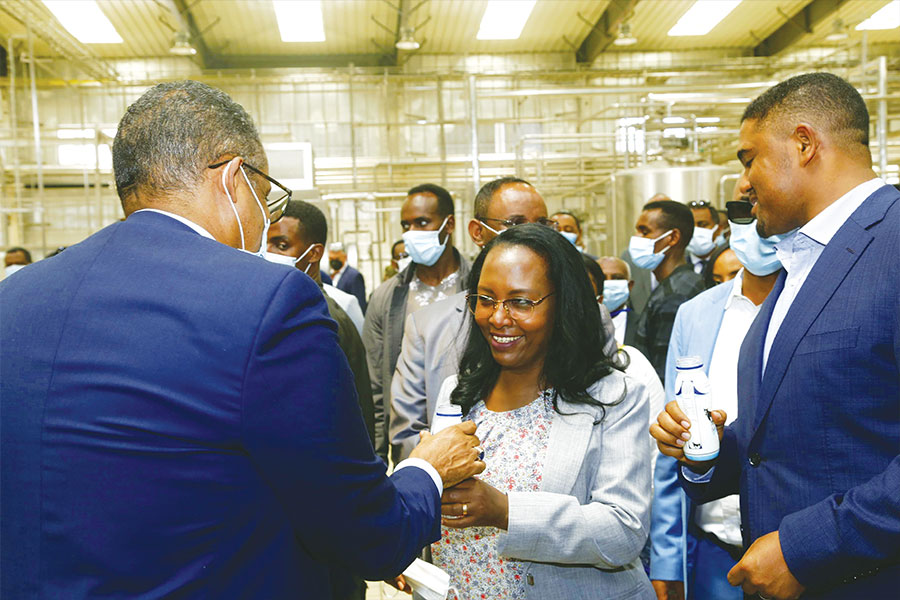
Fortune News | Apr 10,2021
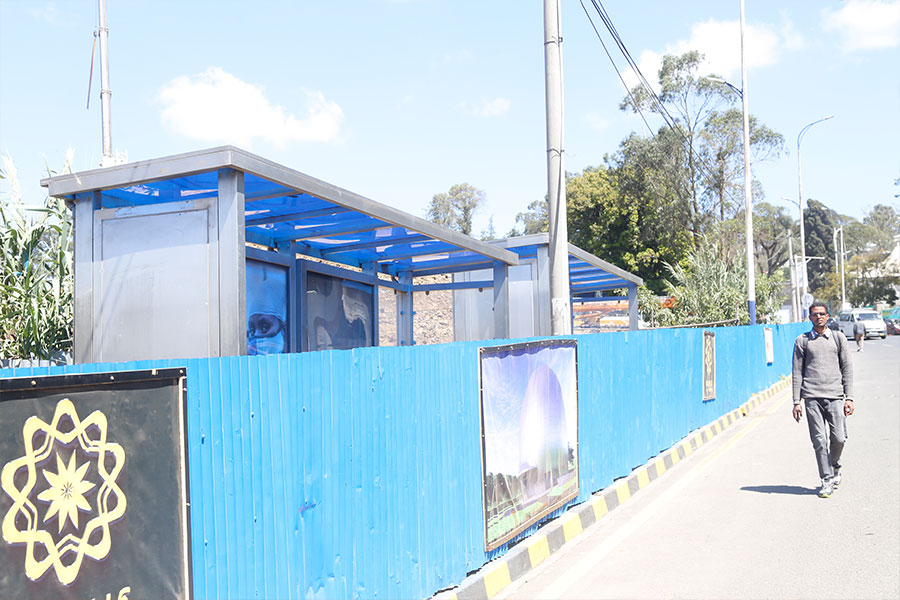
Radar | Oct 30,2021
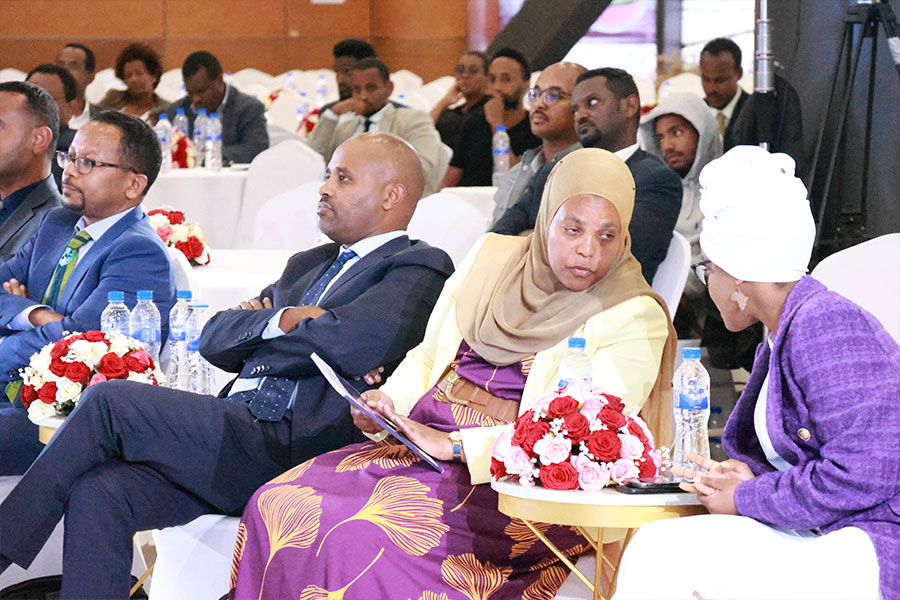
Fortune News | Sep 09,2023
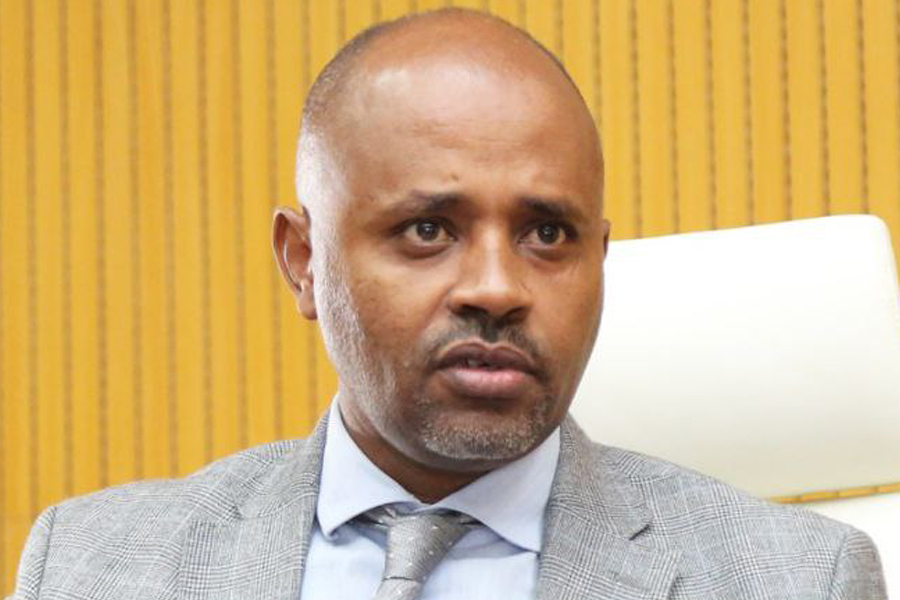
Fortune News | Aug 25,2024

Dec 22 , 2024 . By TIZITA SHEWAFERAW
Charged with transforming colossal state-owned enterprises into modern and competitiv...

Aug 18 , 2024 . By AKSAH ITALO
Although predictable Yonas Zerihun's job in the ride-hailing service is not immune to...

Jul 28 , 2024 . By TIZITA SHEWAFERAW
Unhabitual, perhaps too many, Samuel Gebreyohannes, 38, used to occasionally enjoy a couple of beers at breakfast. However, he recently swit...

Jul 13 , 2024 . By AKSAH ITALO
Investors who rely on tractors, trucks, and field vehicles for commuting, transporting commodities, and f...

Jul 12 , 2025
Political leaders and their policy advisors often promise great leaps forward, yet th...

Jul 5 , 2025
Six years ago, Ethiopia was the darling of international liberal commentators. A year...

Jun 28 , 2025
Meseret Damtie, the assertive auditor general, has never been shy about naming names...

Jun 21 , 2025
A well-worn adage says, “Budget is not destiny, but it is direction.” Examining t...